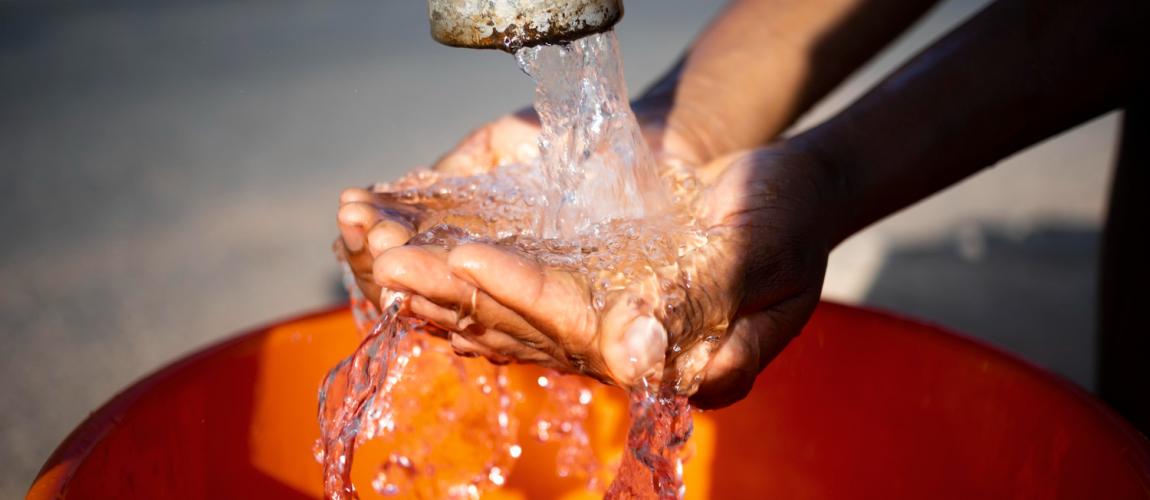Water Supply Project, Mysore, Karnataka, India

Photo Credit: Image by Freepik
On this page: Challenging Case: Water Supply Project, Mysore, Karnataka, India. Find more at the Municipal Public-Private Partnership Framework - Project Summaries section for brief summaries of around 100 projects from around the world, examples of successes and challenges, as well as innovative ideas on solutions, or visit the Guidelines to Implementing Asset Recycling Transactions Section Overview and Content Outline, or download Full Version of the Report.
Project Summary: Background Uninterrupted access to tap water remains a luxury for many Indians, as most water supply systems in India suffer from inefficiencies stemming from leakages and poor management. This results in significant costs for many Indians, due to the need to invest in water storage tanks and filters as a backup in case of interruptions in piped water supply. Starting in 2004, the Government of Karnataka (GoK) together with the World Bank launched the Karnataka Urban Water Sector Improvement Project (KUWASIP). The project, first piloted in three cities in Karnataka, aimed to reform the water supply and sanitation sector in Karnataka state. Due to the success of the program, GoK replicated the project in other cities in Karnataka, including Mysore in 2008. Project Structure A six-year concession to rehabilitate Mysore’s century-old water supply system and oversee its operation and maintenance was awarded to Jamshedpur Utilities and Services Co. Ltd. (Jusco) in November 2008 through an open bidding process. The project was valued at INR 1.64 billion (USD 23.4 million). The Jawaharlal Nehru National Urban Renewal Mission of the Union’s government financed the project, requiring no investment from the private company. The project comprised three phases: one year of preparation, three years for rehabilitating the system, and another two years for operation and maintenance. According to the agreement, the public sector (Mysore City Corporation and GoK) was responsible for pricing and disconnecting illegal water connections, with help from the private company to survey and map out the illicit connections in the city. The private company was given the rights to collect revenue from the consumers, to be subsequently handed over to the public sector. The agreement also stipulated performance clauses, under which the private company would be entitled to bonuses for strong performance. Accordingly, financial, pricing and demand risks were borne by the municipality. Responsibility for operation and maintenance was assumed by the private operator, while both parties would share the technical risk. Lessons Learned After Jusco took over the water supply system in Mysore, revenue collection improved from INR 160 million (USD 2.3 million) in 2008-09 to INR 250 million (USD 3.6 million) in 2011-12. In January 2013 alone, the revenue reached INR 230 million (USD 3.3 million). Jusco has also identified 70,000 illegal connections. Of the 70,000, Mysore City Corporation has regularized 19,000. However, the project later began to struggle, due to the following: Data discrepancies and financing issues. There were data discrepancies between the data in the original agreement and what was found by Jusco through its survey. The agreement stated that the network of pipelines was over 910 km with 117,000 connections, while in fact the pipeline network was 1,910 km with 174,000 connections. The discrepancies have caused changes in the scope of work and increased the estimated cost of projects, leading to a difficult renegotiation process. Lack of cooperation between Jusco and Vani Vilas Water Works. The municipality seconded the employees of Vani Vilas, the city’s existing waterworks department, to work under Jusco. But reports suggested that there were conflicts between Jusco and the employees of Vani Villas. Delayed work. The project was delayed due to the above issues. The new system was only able to connect 61,000 of the 174,000 identified households. Of the 61,000, only 13,000 homes are receiving continuous water supply. Since Jusco failed to meet its targets, it was unable to secure its bonuses. In 2012, protests arose due to a drinking water crisis, unsatisfactory progress in the modernization project, and high water bills. The protesters urged the city to cancel its agreement with Jusco. This project highlights the following lessons learned. The private company did not make any investment in the project, such that it had little incentive to protect and renegotiate the project contract after discovering the data discrepancies. It is important in any PPP that the private partner have a meaningful financial stake in the success of the project. Little attention was given to incentivizing the existing municipal waterworks staff following the transfer in management, contributing to a dispute between the existing staff and the new private operator. In addition to avoiding disputes, designing proper incentives for workers can also help improve performance in the long run. Pricing was an issue. Public opinion was that the higher water bills were not justified by improved service, leading to dissatisfaction among the population, especially the poorer communities. Pricing must always be set in an equitable and transparent manner, with due care to the willingness and ability of end-users to pay.1 Footnote 1: Case source(s): http://www.worldbank. org/en/news/ feature/2013/01/01/ karnataka-three-townspilot- water-supply Accessed on May 21, 2019. https://www.livemint. com/Politics/veuBt9z ArpvuusyysCLntK/ Mysores-24x7-waterproject- falls-short-oftargets. html Accessed on May 21, 2019.
This is a new section of the PPPLRC website and is currently in draft form. Your feedback is welcome: If you would like to comment on the content of this section of the website or if you have suggestions for links or materials that could be included please contact us at ppp@worldbank.org.
To find more, visit the The Municipal Public-Private Partnership Framework - Project Summaries section, the Guidelines to Implementing Asset Recycling Transactions Section Overview and Content Outline, or download Full Version of the Report.
Updated: March 9, 2024